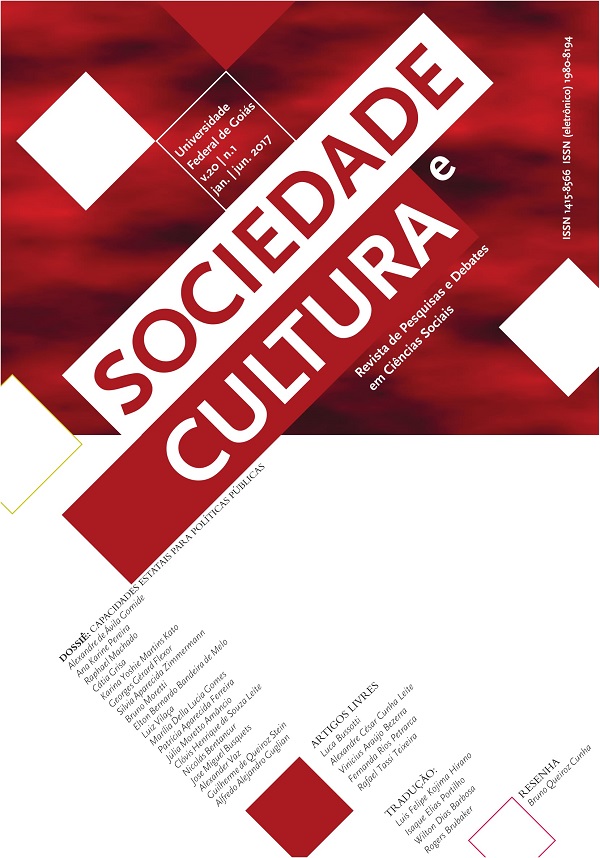Nacionalismo “cívico” e “étnico”
DOI:
https://doi.org/10.5216/sec.v20.51060Resumen
Desde o seu início no fnal do século XIX até a atualidade, o estudo da formação nacionale do nacionalismofoi marcado por uma profunda ambivalência e por uma
ambiguidade intratável. De um lado, o nacionalismo foi
associado com o militarismo, a guerra, a irracionalidade, o
chauvinismo, a intolerância, a homogeneização, a assimila-
ção forçada, o autoritarismo, o paroquialismo, a xenofobia,
o etnocentrismo, a limpeza étnica e mesmo o genocídio;
ele foi caracterizado como “a mais absoluta vergonha política do século XX” (DUNN 1979, p. 55). Por outro lado,
a formação nacional e nacionalismo estão ligados pela democracia, pela autodeterminação, pela legitimidade polí-
tica, pela integração social, pela religião civil, pela solidariedade, pela dignidade, pela identidade, pela sobrevivência
cultural, pela cidadania, pelo patriotismo e pela libertação
do domínio estrangeiro.
Descargas
Los datos de descargas todavía no están disponibles.
Descargas
Publicado
2017-12-27
Cómo citar
BRUBAKER, Rogers. Nacionalismo “cívico” e “étnico”. Sociedade e Cultura, Goiânia, v. 20, n. 1, 2017. DOI: 10.5216/sec.v20.51060. Disponível em: https://revistas.ufg.br/fcs/article/view/51060. Acesso em: 13 feb. 2026.
Número
Sección
Tradução
Licencia
Autores/as que publican en esta revista están de acuerdo con los siguientes términos:
- Autores/as mantienen los derechos autorales y ceden a la revista el derecho de primera publicación, siendo el trabajo simultáneamente licenciado por la Creative Commons Attribution License, lo que permite el compartir del trabajo con reconocimiento de autoría y de la publicación inicial en esta revista;
- Autores/as tienen autorización para asumir contratos adicionales separadamente, para distribución no exclusiva de la versión del trabajo publicada en esta revista (ejemplo: publicar en repositorio institucional o como capítulo de libro), con reconocimiento de autoría y de la publicación inicial en esta revista;
- Autores/as tienen permiso y son estimulados/as a publicar y a distribuir su trabajo en la web (ejemplo: en repositorios institucionales o en su página personal) a cualquier punto antes o durante el proceso editorial, ya que eso puede tener alteraciones productivas, así como aumentar el impacto y la cita del trabajo publicado (véase O Efeito do Acesso Livre).



